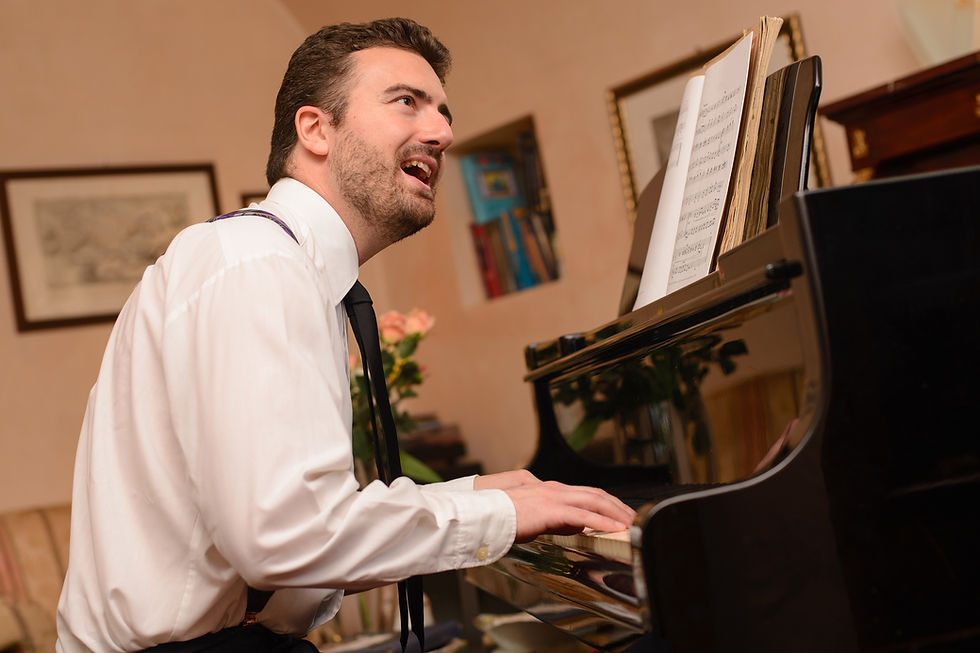Adult Music Lessons: Too Late to Learn?
- Rebecca Lane
- Jun 18, 2021
- 3 min read
I've discussed the benefits of starting an instrument early in the past few posts. If you have a young child, we recommend that they get started learning the violin, cello, or piano at age 4 (or even age 3 if they're a bit mature). But what about adults? Is there much point in taking music lessons later in life?

As it turns out, there are plenty of reasons why it might be good to pick up an instrument in adulthood. This study documents that adults who played an instrument were less likely to develop Alzheimer's Disease, and have generally healthier brains than their peers.
If you have a child who is in music lessons, you will also notice that learning an instrument alongside them is extremely helpful when you are practicing with them (more posts coming soon about practicing with your child). The Suzuki method advocates that parents learn at least a little bit of their child's instrument so that they can be the "at-home" teacher (read more about parental involvement in the Suzuki method here). In my experience, adults who take violin lessons with their child report greater feelings of empathy when their child is frustrated, and have more tools to help them fix problems when they aren't reaching their goals.
Personally, I think the best reason to play as an adult is simply because it's fun! Whether you are taking private lessons or a group class like our Adult Fiddle Class, playing an instrument brings an immense sense of satisfaction and joy into your life. I have taught many adult students over the course of my career, and all have thoroughly enjoyed learning a new skill that many have written off because it's usually for young children.
Here's what to expect if you start an instrument later in life:

1. You won't sound good right away. Part of what children learn in music lessons is how to listen and distinguish between beautiful sounds and not-so-desirable ones. Most adults come to music lessons with a developed ear and can tell their violin sounds the way it should, or if their piano piece is being played with accurate rhythms- and it bothers them. Unlike kids, adults are much more concerned with sounding good from the get-go, and can often get frustrated if they don't get the result they want early on.
2. You'll learn concepts quickly. Learning to read music is not rocket science. Most adults can learn it quickly (with diligent practice) because they already understand concepts like fractions and note values, and reciting the alphabet forwards and backwards. Your brain power will help offset your frustration with learning slower than you'd like.
3. You will be nervous. Most adults report higher levels of performance anxiety, even in private lessons. It's a concept we have to encounter over and over in life, and there is no better way to tackle it than through music lessons. You have to know your pieces inside out when you're at home in order to even just shuffle through it at your lesson if front of your teacher. Adults who are used to bringing this level of perfection to their lessons and recitals are much better prepared to give presentations at the office.
4. You will be SO proud of what you achieve. More so than a child, you will understand just how much work it took to get there (you probably don't have your mom cheering you on, like you would have as a kid), and so the accomplishment is all yours. And it feels great!
Just like we do for kids, Upper Beaches Music School offers a free trial lesson for adults. You can book a free trial lesson by filling out the short form here, or just ask us any questions you might have.

Rebecca Lane is the director, founder, and owner of Upper Beaches Music School. She teaches at the school on Saturdays, but most days you can find her chasing after her three young children, one of whom is in the Suzuki violin program at UBMS.






















